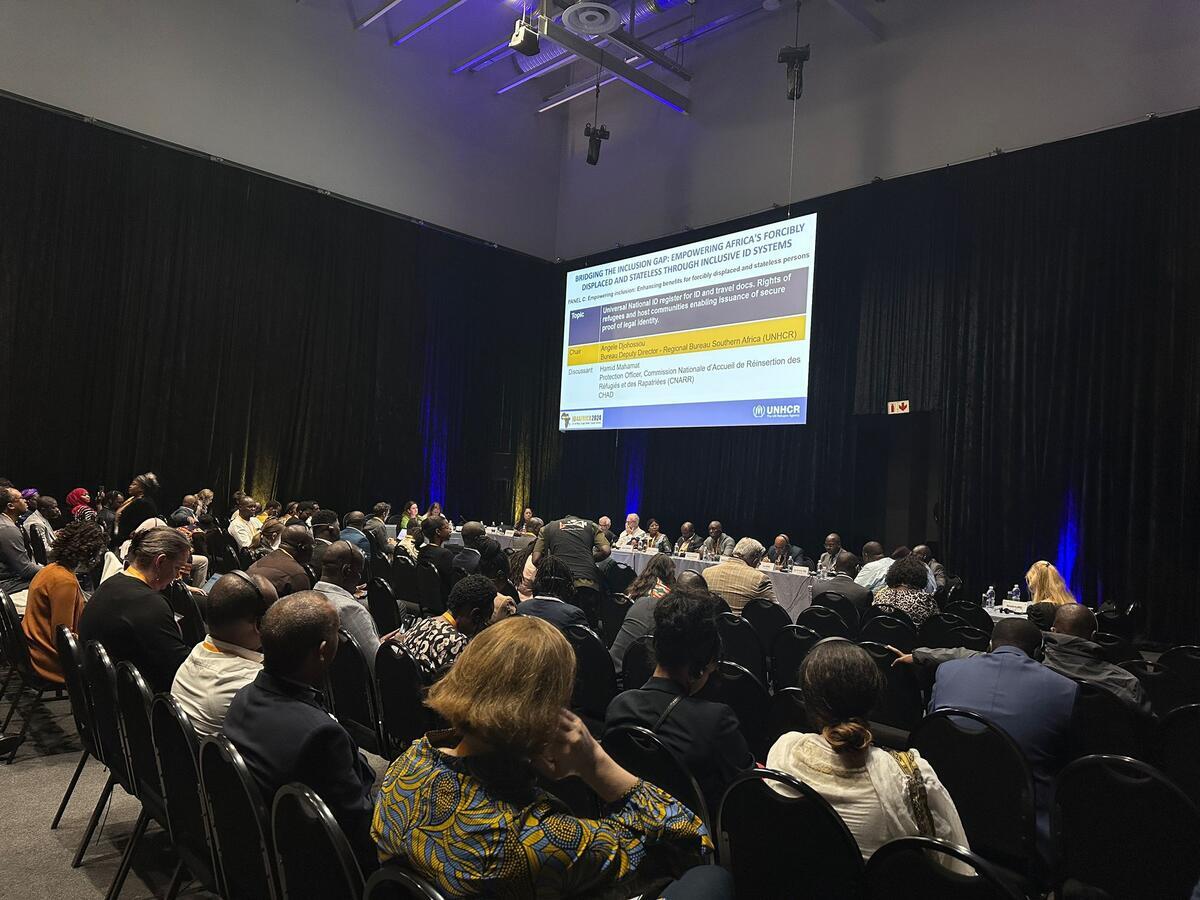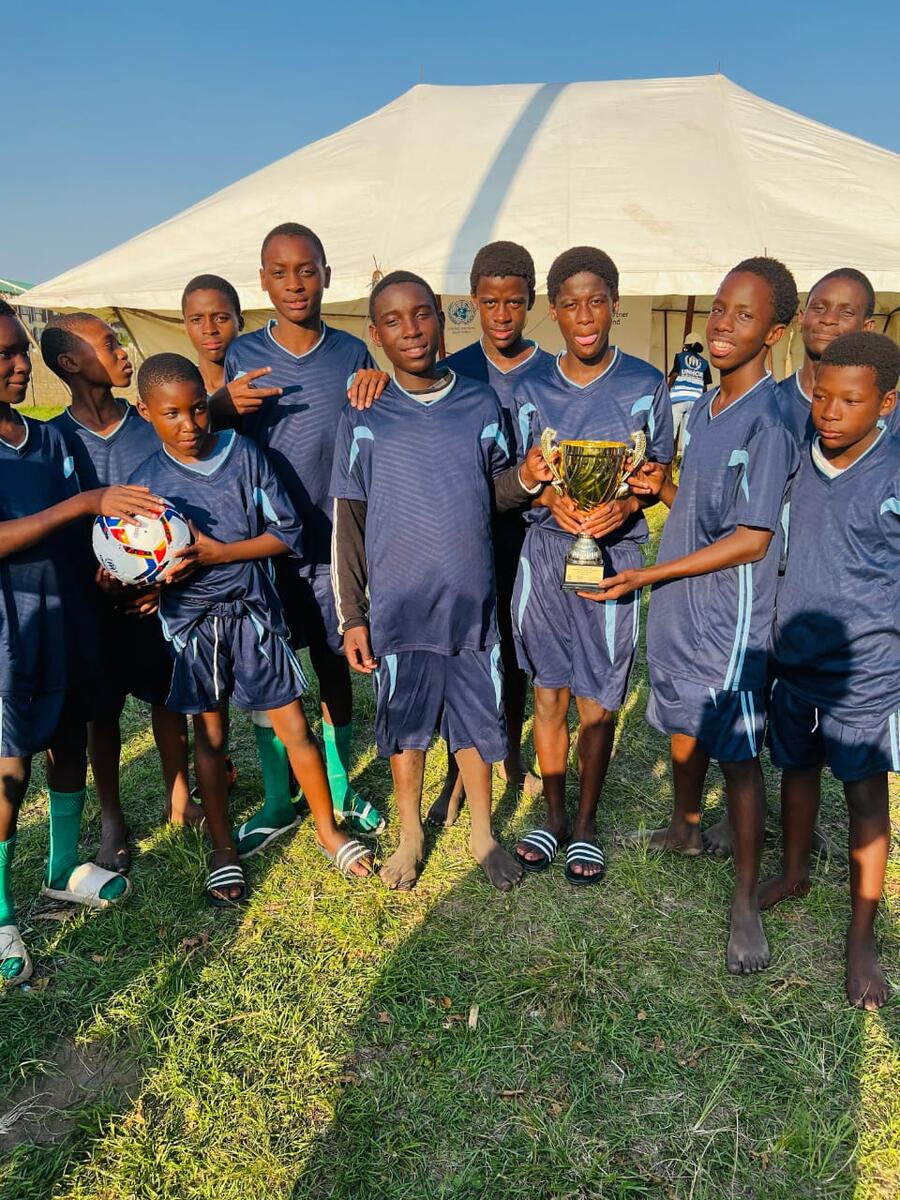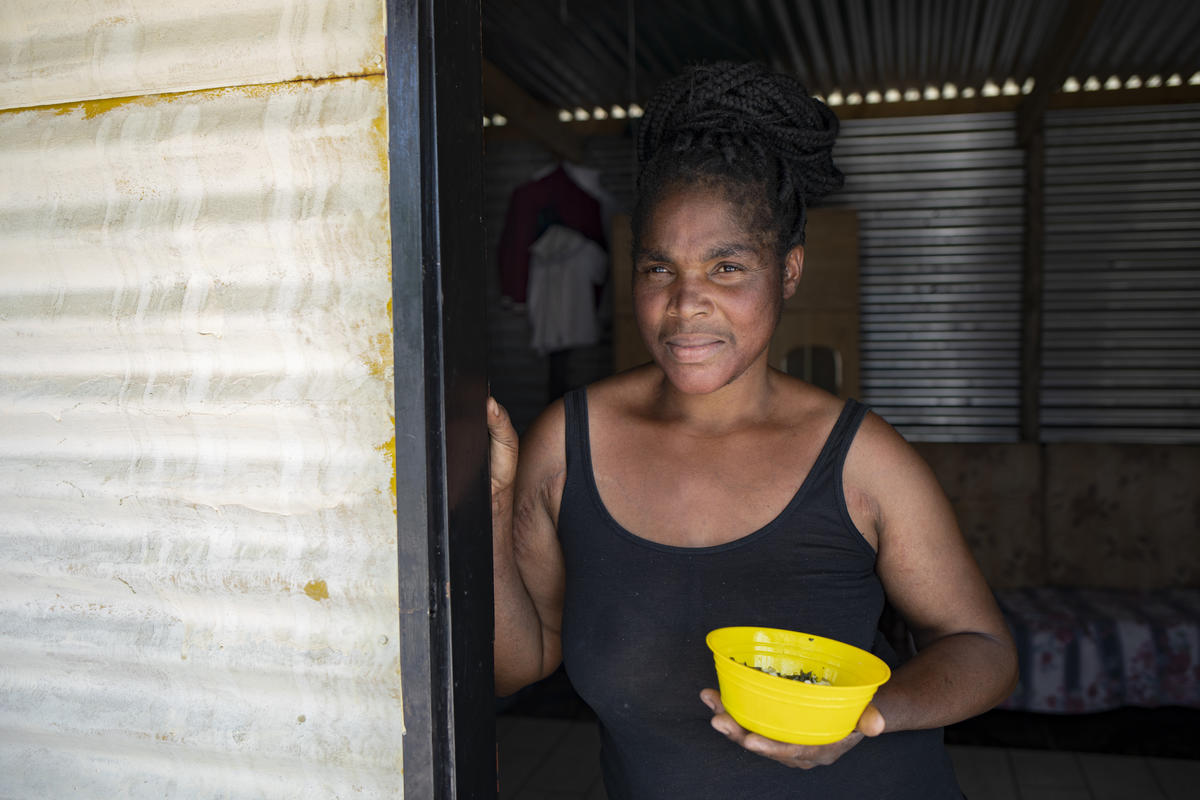Risk of statelessness plagues mother in South Africa
Risk of statelessness plagues mother in South Africa

Since she was 15, Lebo Maphoditsa has gone through a whirlwind of processes, trying to be recognized as a South African. But 21 years later, she still does not have an identity document, because she has no birth certificate or proof of registration of birth.
When her mother died shortly after giving birth to her, Maphoditsa became her grandmother’s dependent. However, when her grandmother passed away, she was left under the care of a kind neighbour.
“I never felt the warmth and love of my family,” she says.
“I was nobody and I belonged nowhere.”
Maphoditsa recalls how she was constantly teased at school and called ‘that girl who has no parents’ while at home she was subjected to constant reminders that no one wanted her.
“I was nobody and I belonged nowhere,” she says.
By the age of 10, her peers’ taunts became too much to bear and she dropped out of school. By 15, her guardian passed away and for the third time in her young life, she was abandoned.
By all accounts, Maphoditsa has lived a difficult existence and the risk of being stateless looms over her.
“I realize that to become a productive member of society, I need to complete my formal education,” she explains. “But I don’t have a birth certificate so I can’t register at school.”
She adds that without this vital document that she has lacked for 36 years, she is stuck in limbo. Her numerous visits to the Department of Home Affairs (DHA) have resulted in the same response - without a birth certificate, she can’t prove that she was born of South African parents.
Now a mother to four children, she is urgently seeking a solution to her problem, which has multiplied with the birth of her children.
She has since been referred to the Lawyers for Human Rights (LHR), UNHCR’s partner agency offering legal assistance. LHR manages the Statelessness Project on behalf of UNHCR, the UN Refugee Agency.
The initiative which started in 2011, assists people of concern to UNHCR who, for various reasons, find themselves undocumented and unable to claim citizenship and the rights and privileges that come with the status.
“Through no fault of her own...she has been consistently denied opportunities that her peers and friends enjoy.”
According to Lusungu Kanyama Phiri, LHR’s Legal Counsellor, Maphoditsa’s predicament is typical of someone at risk of statelessness.
“Through no fault of her own but by virtue of non-registration at birth, she has been consistently denied opportunities that her peers and friends enjoy,” she explains.
Phiri has tasked Maphoditsa with gathering as much information as possible to support her claim to South African citizenship, which begins with an application for late registration of birth.
“I have asked her to try and trace any of her former guardian’s relatives but if this fails, to get affidavits from the friends she grew up with including township ward councillors to support her claim to citizenship.”
While there are no exact figures, UNHCR estimates that there are currently millions of people around the world like Maphoditsa who lack any nationality. The majority belong to ethnic, religious or linguistic minorities.
As a result, stateless people or people at risk of statelessness often have difficulty enrolling into school, seeing a doctor, getting jobs, opening a bank account, buying a house or even getting married.
See also: Madagascar’s Karana people still awaiting nationality
Although South Africa has not ratified the 1951 UN Convention relating to the Status of Stateless Persons nor the 1961 Convention on the Reduction of Statelessness, it is party to several treaties like the Convention on the Rights of the Child and the African Charter on Rights and Welfare of the Child. These effectively promote every person’s right to nationality.
Phiri explains that a section of South Africa’s Constitution demonstrates the importance of nationality and the Citizenship Act states that a child born in South Africa is South African by birth, if registered.

If Maphoditsa is unsuccessful in getting the information she requires to apply for late registration of birth, the LHR can consider several legal options to help her case. This includes, but is not limited to going through an appeal process and escalating her case to the High Court for judicial review.
Matthias Reuss, UNHCR’s Senior Regional Protection Officer focusing on Statelessness, explains that while South Africa’s Citizenship Act provides a very good legal framework, practical and administrative obstacles may lead to actual statelessness.
“Maphoditsa’s case shows that having a nationality and being able to prove one’s nationality may be two very different things.”
“The thought that my children will repeat the frustrating cycle I had to go through keeps me up at night.”
Without a birth certificate, Maphoditsa was unable to register her children at birth despite their father having an identity document. As a result, her whole family is now at risk of statelessness.
“The thought that my children will repeat the frustrating cycle I had to go through keeps me up at night,” says Maphoditsa.
Her daughter, Itumeleng is the eldest child. At 14, she has already started to feel the pressure of her mother’s undocumented status. Since her parents separated, they have had to move three times as her mother cannot afford the rent. Even having three meals a day has become a luxury.
“I have been called to her school because she collapsed from hunger,” says Maphoditsa, tearfully. “I don’t usually know where our next meal will come from.”
In three years’ time, Itumeleng will have to register for her Grade 12 national exams, a milestone in her education that should help determine her future. Without a birth certificate, she won’t be able to apply for an identity document to sit her exams. She will become the text book example of the second generation of a family at risk of statelessness – something UNHCR wants to prevent at all costs.
For UNHCR and LHR, resolving Maphotidsa’s situation before her daughter reaches this stage is of utmost importance. Her future and that of her family depends on it.









